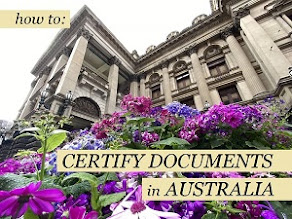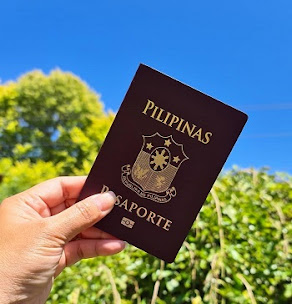Traveling has always been a cherished activity for many, and with the world constantly evolving, so do the rules and regulations that regulate our ability to explore new destinations.
Hence, expect that travelling abroad will be more expensive than ever for Australian tourists, thanks to the new taxes and higher visa fees.
If you're planning a trip, there are a couple of extra hurdles to consider, so it might be a good idea to check out the latest fees to avoid any surprises.
China
China has announced the implementation of a unilateral visa-free policy to Australia, allowing Australian passport holders to enter the country for business, tourism, and transit without a visa for up to 15 days.
Europe
 |
| Image: Rachel Claire/pexels.com |
Beginning next year, travelers planning to visit Europe will be kindly asked to complete an online application as the much-anticipated European Travel Information and Authorization System (ETIAS) is set to be implemented in the first half of 2025.
Visitors from nations that are exempt from visa requirements for approximately 30 European countries will be required to complete the ETIAS before their flight. The electronic travel authorization will incur a fee of €7 (A$11.50) for individuals aged 18 to 70 and will remain valid for three years.
The ETIAS will facilitate an unlimited number of business and leisure visits to Europe's passport-free Schengen Area countries, with each visit being limited to 90 days within a 180-day period. It is important to note that obtaining ETIAS approval will be mandatory for all visa-free travelers, including those from Australia, New Zealand, Canada, the USA, and other visa-waiver countries. Extended stays beyond 90 days will necessitate the acquisition of a full visa.
Bali, Indonesia
Australian travellers visiting Indonesia will need to pay a new tourist tax of 150,000IDR per person (about A$15), through the lovebali.baliprov.go.id website or Love Bali app. You will need to enter your details, including your passport number and arrival date.
Thailand
 |
| Image: Ekaterina Nebyshinets/pexels.com |
Australians traveling to Thailand will be required to obtain an 'electronic travel authorization' (ETA) before their departure, as part of a new initiative by the Thai government. This Thai ETA is compulsory for travelers from nearly 100 'visa waiver' countries that are eligible for visa-free entry to Thailand, including Australia, New Zealand, the United Kingdom, Canada, the USA, Singapore, China, and Hong Kong, as well as the majority of European countries.
The Thai Electronic Travel Authorization (ETA) is similar to the USA's ESTA and the upcoming equivalents from Europe, the UK, and Japan. According to the Ministry of Foreign Affairs, the ETA will commence in a pilot phase by December 2024, with a comprehensive launch slated for June 2025.
ETA applications for Thailand must be submitted online via the official Thai e-Visa website. Each visit to Thailand will necessitate a new ETA application, which differs from the multi-entry ETAs that have been valid for several years in other countries. However, the Thai ETA is anticipated to be free of charge. Upon approval, travelers with an ETA can utilize automated passport control gates at immigration checkpoints.
United Kingdom (UK)
 |
| Image: Lisa Fotios/pexels.com |
If you are planning to visit the UK from 8th January 2025, make sure that you complete online your ETA prior to your flight. Similar to the USA’s ETA and forthcoming equivalents for Europe, Thailand, and Japan, the UK ETA doesn’t replace a conventional visa – it’s intended primarily for tourism and business purposes.
The UK ETA will cost £10 (A$20) – paid via a credit or debit card at the time of your online application – and permits multiple journeys to the UK for stays of up to six months at a time over two years or until the holder’s passport expires.
Travellers will be able to apply for a UK ETA online through the UK Government website or the UK ETA app on their Apple or Android smartphone. This involves providing contact and passport details such as uploading a valid digital photo, answering a set of questions, and of course, paying that £10 fee with your credit or debit card.
Japan
 |
| Image:Bagus Pangestu/pexels.com |
Japan is set to align with the global trend by implementing mandatory travel authorizations for international visitors through a new digital visa waiver program, JESTA.
The program will extend to more than 70 countries that benefit from visa-free entry into Japan, including Australia, New Zealand, the United Kingdom, Canada, the USA, Singapore, Hong Kong, Taiwan, and the majority of European nations.
Travelers from those countries do not need a visa to enter Japan for stays ranging from 14 to 90 days. However, they will soon be required to complete an online JESTA before their flight. The JESTA is anticipated to be valid for multiple years, permitting numerous visits under the same authorization. The cost has not been established, as the Japanese government has only recently declared plans to initiate the program by 2030.
Cruise passenger tax in Greece
Greek officials have announced a plan to introduce a €20 ($33) tourist tax for cruise ship passengers visiting the islands of Santorini and Mykonos during the peak summer season.
Prime Minister Kyriakos Mitsotakis acknowledged while the country doesn't have a "structural over-tourism problem", some destinations experience issues during certain weeks or months of the year.
New visa system in Brazil
Brazil will introduce its own visa system for travellers from Australia, Canada, and the US from April 10, 2025. The cost will be $124 AUD, but the visa will be valid for 10 years and across multiple entries. Stays are limited to 90 days per year. The visa was previously due to be introduced in 2024 – or, rather, reintroduced.
Applicants will also need to provide additional information, according to the Brazilian government's website.
More Tourist tax increase
In Porto, Portugal, the city council is raising the tourist tax from €2 to €3 ($5) per night, despite the city's reputation as a budget-friendly travel destination.
Meanwhile, Rome is looking at creating a ticketing system for anyone wanting to visit the Trevi fountain. Although no official plans have been announced, the popular bucket-list attraction might soon require a fee.
New Zealand will also nearly triple entry fees for tourists, meaning from October 1 international visitor and conservation and tourism fees will start from NZ$100 ($61.85) from NZ$35. However, Australians and travellers from most Pacific nations will be exempt from the levy.
The world of travel is dynamic, and staying updated with the latest rules is key to a hassle-free journey. For Australian passport holders, the recent changes in travel rules represent a shift towards more digital and streamlined processes. As you plan your next adventure, remember to check the requirements well in advance and prepare accordingly.
Safe travels!



























Thank you for sharing po must read and very informative lalo na sa may mga plan jan pumunta ng other country para alam na nila ang new vida rules for Australians passport.
ReplyDelete